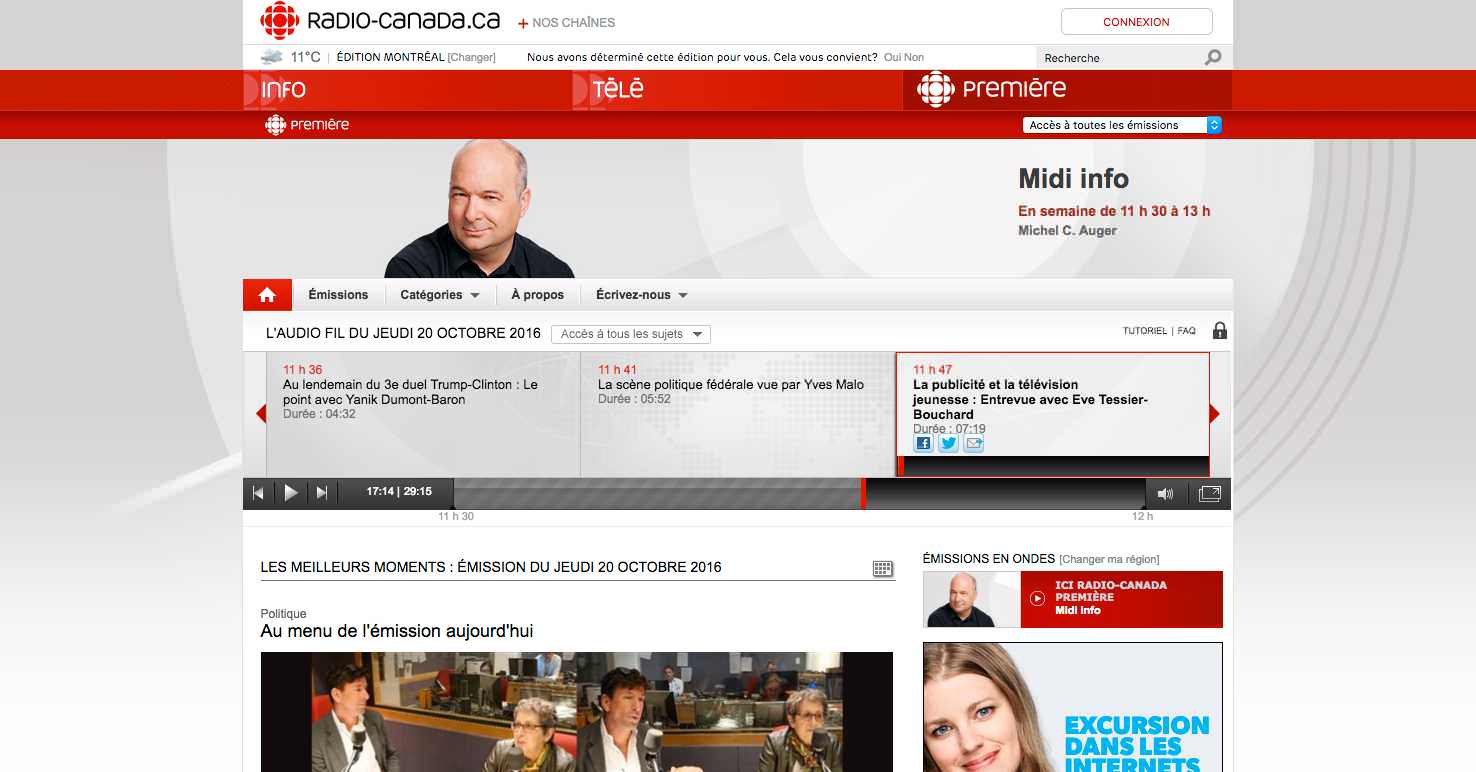Advertising and youth content

In Quebec and other regions of the world, youth content is an expense, not a source of revenue pour broadcasters. If not considering the cultural value it creates, it is content that is produced at a loss.
And what if we took the time to talk about it?
Some of the sites that 6-12 years-old visit the most are YouTube, Disney, Lego (especially 8 to 12 year-old boys) and many others that are attached either to a brand, or include advertising strategies.
” We need to live like it’s 2016, where our kids are bombarded with advertising on the internet… Can we find a way to loosen this 36 year-old law, but set clear guidelines to limit abuse while helping youth Quebec television series survive?” asks Ève Tessier-Bouchard, vice-president television at Toast. “Quebec is the only Canadian province and one of few territories worldwide to have such a law. Are all the other kids around the world traumatized by advertising? Do we, collectively, wish we can keep offering them quality television shows produced here in Quebec? If so, we have to find solutions to help fund these series.”
If young children in Quebec watch local television shows, they will also adapt themselves and discover the Quebec star system. They will know local broadcasters even more. We are building tomorrow’s consumers of local content and culture.
Sounding the alarm about youth content
The subject was first covered in LaPresse+.
Hugo Pilon-Larose met with Ève Tessier-Bouchard, Marie-Claude Beauchamp (producer at Carpe Diem) and Cécile Bellemare (former director of youth programming at Radio-Canada and former director of program development at Télé-Québec) as they are sounding the alarm, with a real risk that youth television could eventually disappear if new legislation isn’t passed in Quebec. (The entire article, in French, is available here.)
Loosening the law, but with clear guidelines and limits
On October 20th, Ève was interviewed by Michel C. Auger, on the airwaves of Radio-Canada’s Midi Info radio show. (You can hear the integral interview, in French, here.)
«On veut pas que ce soit mur à mur, mais on veut un assouplissement, qui nous permette de financer nos productions» Ève Tessier-Bouchard
— Midi info (@Midiinfo) 20 octobre 2016
The competition is on a global scale
From an industrial standpoint, measures that are too rigid cause a real problem in a very competitive market because today, in 2016, the world opens itself up to our kids. Our content is in direct competition with those coming from all around the world.




